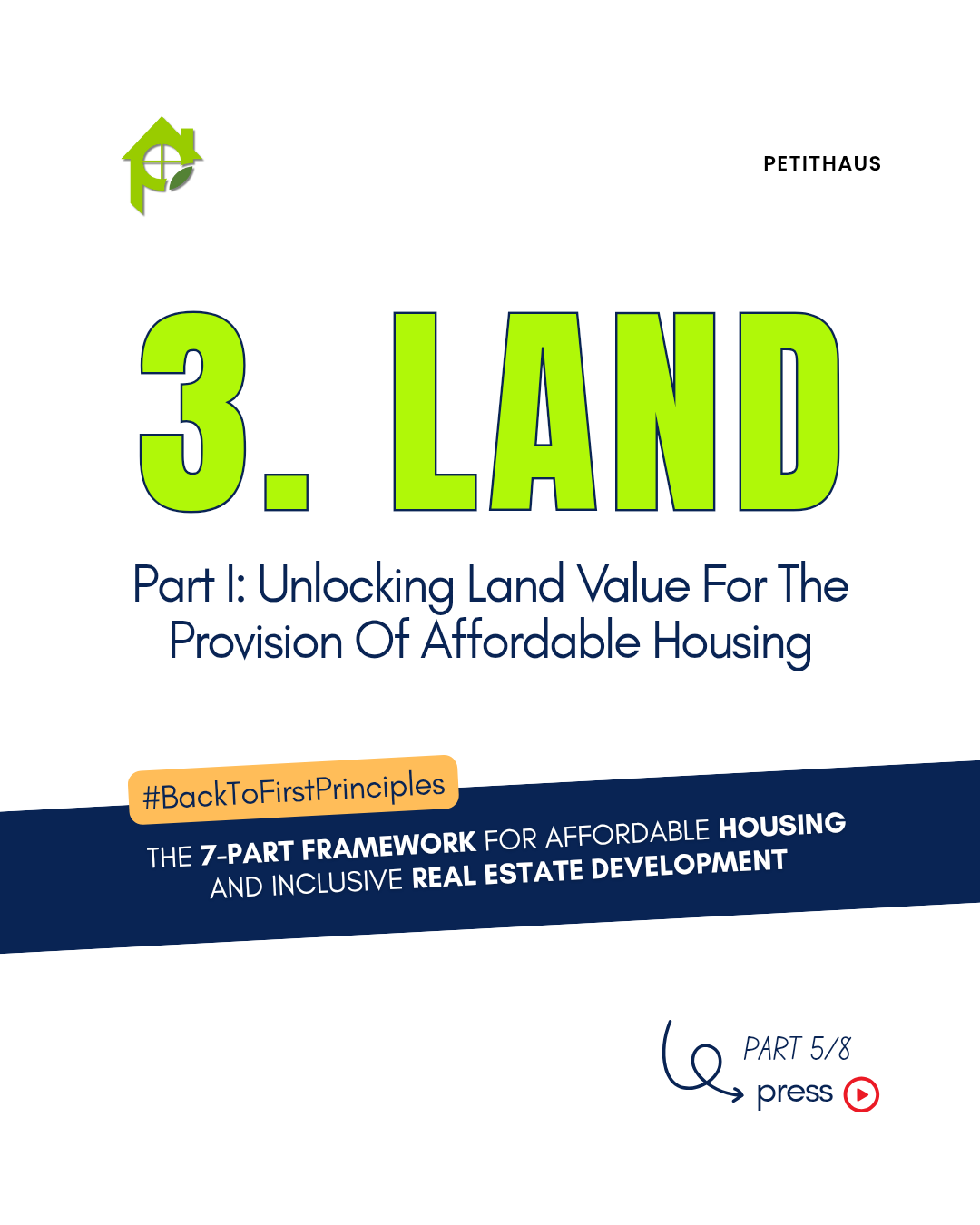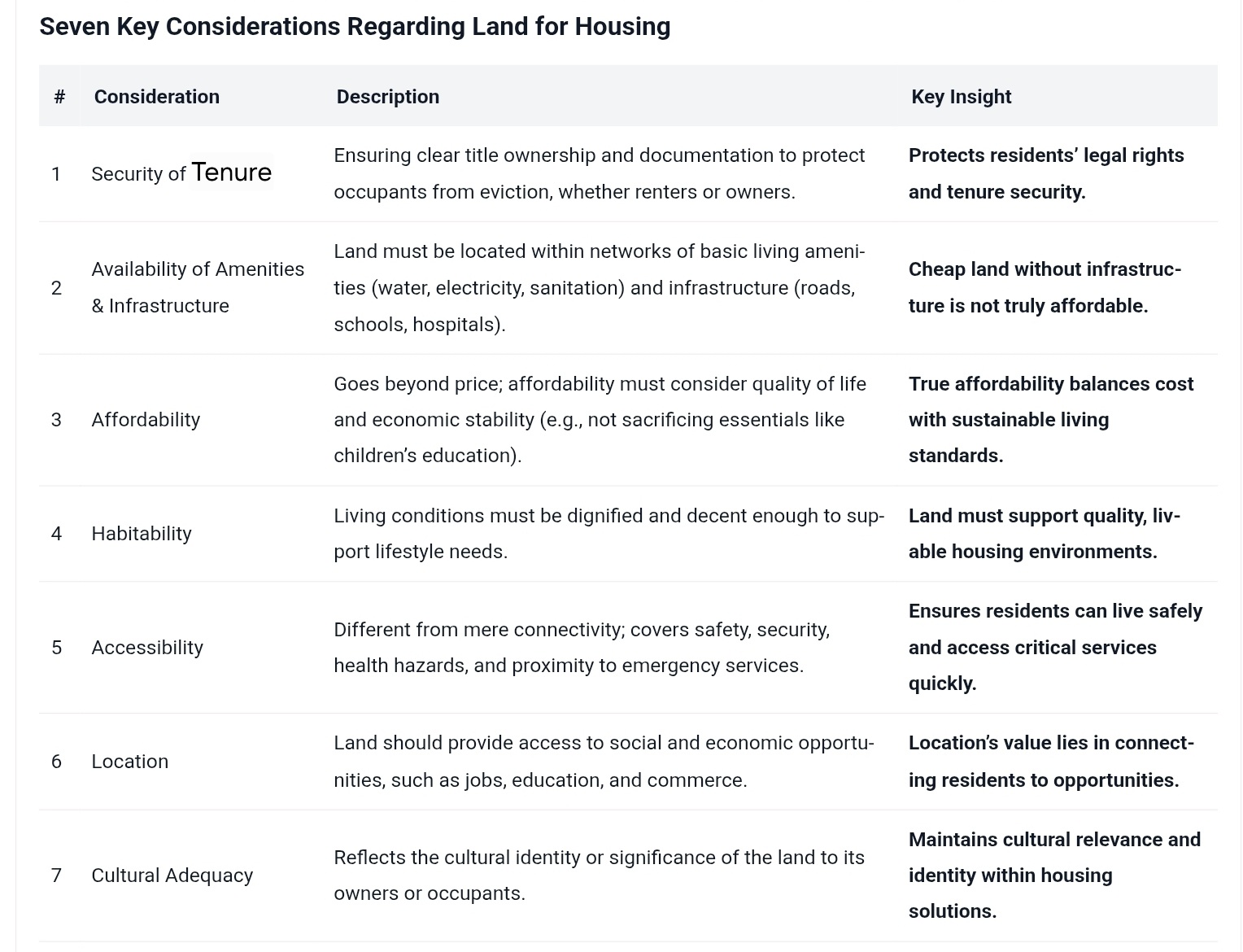
CONTACT US
Affordable Homeownership

SNEAK PEEK
When we talk about real estate, land is the first thing we mention and the last thing we understand. All that concerns us is:, “Land is expensive,” but we rarely ask why.
In truth, land is not just a commodity. It’s a living framework that determines how people live, connect, and thrive. It’s where families build futures, where businesses grow, and where cities either rise or collapse.
That’s why, before we talk about buying land, we must talk about understanding land.
To understand how land supports “adequate housing,” we have to see it as more than soil. The UN’s housing rights highlight the need for peace, security, and dignity.
Here’s how that translates practically:

Together, these considerations redefine what “affordable” truly means. Not just ‘cheap,’ but livable.
Nigeria’s land market operates on a single metric: price.
We measure affordability only by how cheap land is, ignoring what that cheapness costs in infrastructure, transport, and quality of life. Cheap land in the wrong place is a liability, not an asset. The truth is: Land without access is not affordable, it’s isolating.
Nigeria’s housing crisis isn’t simply because “land is expensive.” It’s because we have a narrow, one-dimensional way of thinking about land value.
As a society, we’ve mastered the art of pricing land, but not of capturing its true value, the value that includes its potential to uplift lives, connect people to opportunities, and create sustainable communities.
We’ve also limited our thinking to a few low-hanging fruits: land banking, land sales & leases, just because these models can return profit within a short time. Whereas there are a handful more land-based financing methods.
If we truly want to address housing affordability, we must go beyond these conventional mechanisms. We need innovative land-based finance models that capture not just market value but social value, models that make land work for people, not just for balance sheets.
But land has layers of value that can be unlocked through innovation: community ownership models, shared equity, public-private financing, and trust-based frameworks that keep housing accessible.
The issue is not lack of land; it’s lack of imagination.
To move forward, we need to:
Land should serve as a bridge between opportunity and ownership, not a barrier to both. Land is not just where we build homes; it’s where we build futures. If we start to value land by how it serves people (not just how it sells), we’ll move closer to solving Nigeria’s housing crisis.
Because every great nation is built, first, on how it values its land and the dignity of those who live on it. And that’s where the next conversation begins…
Read the next episode, where we discuss land-based finance models that can help us unlock affordable housing for Lagos' middle class.
01.

02.
Category
Discover insights into creating affordable homeownership with PetitHaus.
